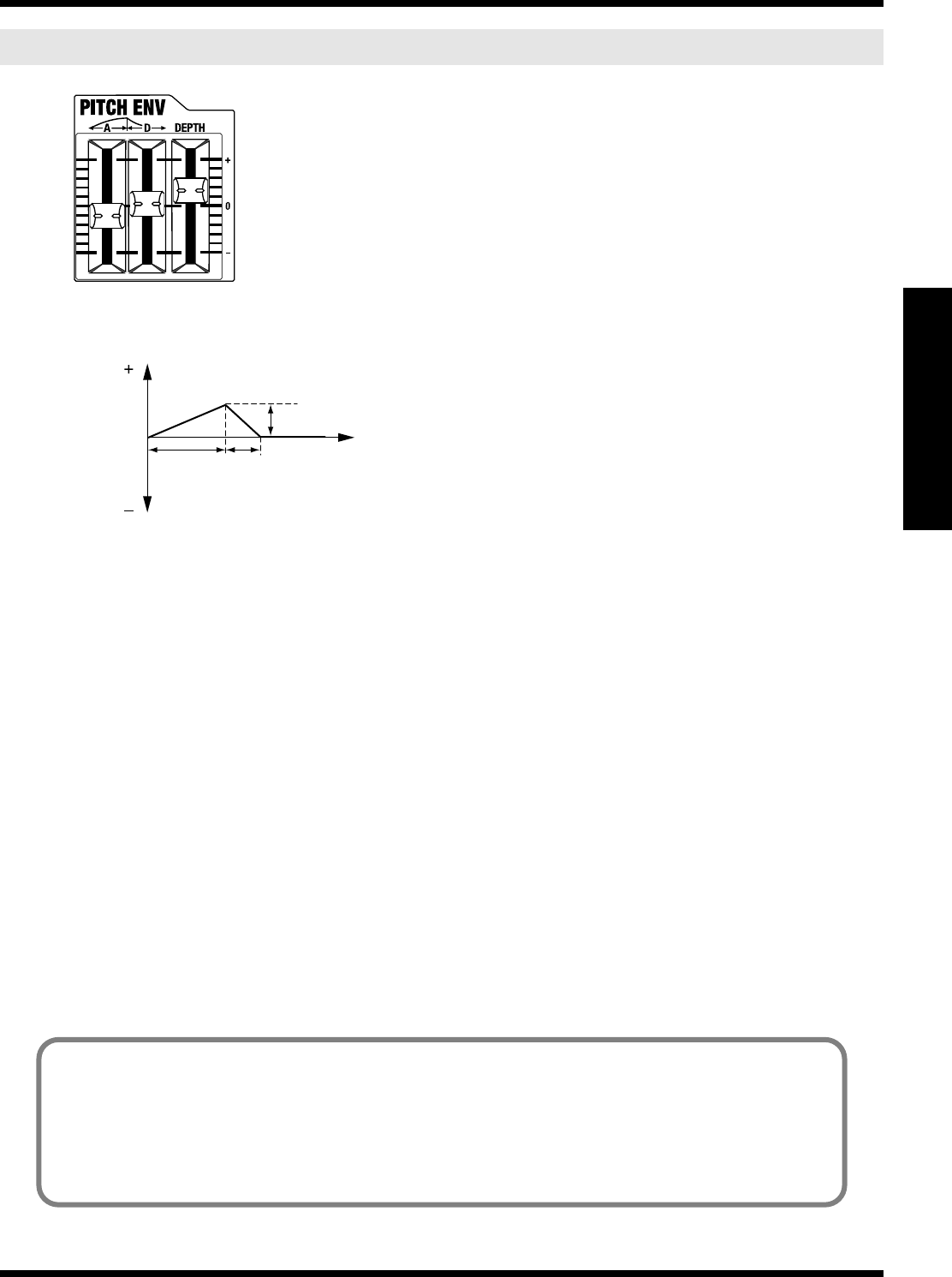
31
Creating sounds
Creating sounds
fig.P-ENV-sliders
Brass instruments such as trumpet sometimes produce a slight shift in pitch when you begin blowing a note. You
can use the pitch envelope to create this type of change in pitch over time.
fig.PitchEnv.e
A (attack time) slider
Specifies the time from when you play a key until the pitch reaches the highest (or lowest) point.
Moving the slider upward lengthens the time, and moving it downward shortens the time.
D (decay time) slider
Specifies the time from when the pitch reaches its highest (or lowest) point until it returns to the pitch of the key
you pressed.
Moving the slider upward lengthens the time, and moving it downward shortens the time.
DEPTH slider
Specifies the direction and amount of the pitch change.
• Moving the slider upward (in the “+” direction) causes the pitch to initially rise, and then return to the pitch of
the key you pressed. Moving the slider farther will produce a greater rise in pitch.
• Moving the slider downward (in the “-” direction) causes the pitch to initially fall, and then return to the pitch
of the key you pressed. Moving the slider farther will produce a greater fall in pitch.
* DEPTH can be set independently for OSC 1 and OSC 2. For example, you could leave the OSC 1 pitch fixed, and change the
pitch only for OSC 2.
When the OSC 1 button is lit, moving the DEPTH knob will change the OSC 1 DEPTH. When the OSC 2 button is lit,
moving the DEPTH knob will change the OSC 2 depth.
PITCH ENV (pitch envelope) sliders
pitch
AD
DEPTH
time
Using PITCH ENV
If you want the sound to rise briefly, as at the beginning of a trumpet note, set A and D to very short times
and move the DEPTH slightly in the “+” direction.
By setting A to the shortest setting (with the slider all the way down), D to a somewhat longer setting, and
DEPTH all the way up, you can create a down-swooping pitch similar to the electronic drums that were
popular in the 1980’s.
SH-201_r_e.book 31 ページ 2006年4月27日 木曜日 午前11時28分


















